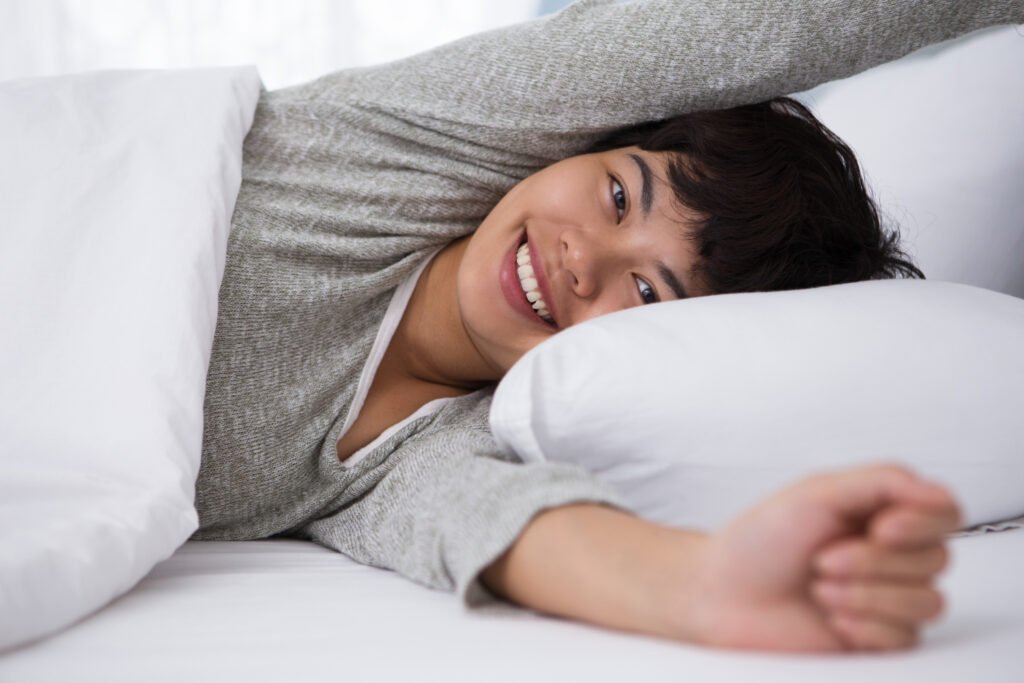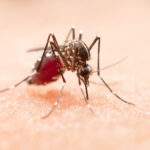
In this article
Sleep apnea, a condition where breathing stops temporarily during sleep, can cause a range of health issues beyond just daytime tiredness. Some alternative treatments, such as weight loss and changing your sleeping position, can help relieve obstructive sleep apnea and improve your sleep.
Sleep apnea is characterized by pauses in breathing during sleep, leading to decreased oxygen intake. This often causes individuals to gasp and wake up multiple times throughout the night. Many people with sleep apnea may not even realize that their sleep is being disrupted, mistaking the condition for regular snoring.
Untreated sleep apnea can lead to severe health complications, such as:
- Triggering mental health issues
- Reducing immune function
- Contributing to memory loss
- Increasing the risk of heart failure
While traditional treatments include breathing devices, medication, and surgery, some lifestyle changes and home remedies can significantly improve your quality of life and sleep.
Sleep Apnea Lifestyle Remedies
Traditional treatments, like wearing a CPAP mask at night, can be effective but uncomfortable for some. Here are six alternative treatments to reduce sleep apnea symptoms.
1. Maintain a Healthy Weight
Doctors often advise people with sleep apnea to lose weight, as obesity, particularly in the upper body, can increase the risk of airway obstruction and narrow nasal passages. These obstructions can cause breathing to stop suddenly or for extended periods during sleep.
Maintaining a healthy weight can keep your airways clear and reduce sleep apnea symptoms. Research indicates that even a modest weight reduction in obese individuals can eliminate the need for upper airway surgery or long-term CPAP therapy. In some cases, weight loss can completely eradicate sleep apnea, but the condition can return if the weight is regained.
2. Try Yoga
Regular exercise can boost your energy levels, strengthen your heart, and improve sleep apnea. Yoga, in particular, can enhance respiratory strength and encourage better oxygen flow. Since sleep apnea is linked to decreased oxygen saturation in the blood, yoga’s breathing exercises can help improve oxygen levels and reduce sleep interruptions.
3. Alter Your Sleep Position
Changing your sleep position can significantly reduce sleep apnea symptoms and improve your rest. Research has found that more than half of obstructive sleep apnea cases are position-dependent. Sleeping on your back can worsen symptoms, while sleeping on your side can help normalize breathing. However, children with sleep apnea may benefit from sleeping on their backs. It’s essential to discuss body positioning and your symptoms with your doctor to determine the best approach for you.
4. Use a Humidifier
Humidifiers add moisture to the air, which can help open your airways, reduce congestion, and promote clearer breathing. Dry air can irritate the body and respiratory system, so using a humidifier can be beneficial. For added benefits, consider adding lavender, peppermint, or eucalyptus oil to your humidifier, as these essential oils have anti-inflammatory and soothing properties. Always follow the manufacturer’s instructions for cleaning your humidifier to prevent mold and bacteria growth.
5. Avoid Alcohol and Smoking
Lifestyle changes, such as quitting smoking and limiting alcohol intake, can improve your health and sleep habits. Alcohol relaxes the throat muscles that control breathing, leading to snoring and interrupted sleep. It can also cause airway inflammation, obstructing airflow. Similarly, tobacco use contributes to airway inflammation and swelling, worsening snoring and sleep apnea. Studies have identified smoking as a risk factor for developing sleep apnea, and treating the condition may help with smoking cessation.
6. Use Oral Appliances
Oral appliances can help manage sleep apnea by repositioning the jaw or tongue to keep the airway open during sleep. The two main types are mandibular advancement devices and tongue stabilizing devices, which move the lower jaw or tongue forward to reduce throat obstruction. These devices range from low-cost over-the-counter options to custom-fitted devices made by a dentist. The American Academy of Dental Sleep Medicine supports oral appliances as effective therapy for sleep apnea. Custom-fitted appliances are recommended over OTC options for better jaw positioning and improved sleep quality.
Outlook
While some home remedies and lifestyle changes can reduce sleep apnea symptoms, they should complement traditional treatments. Medications and sometimes surgery are necessary to treat this condition. Always discuss your options with your doctor before trying alternative treatments, and seek immediate medical attention if your symptoms worsen.
Recognizing Sleep Apnea Symptoms
Snoring is the most well-known symptom of sleep apnea, but there are others, including:
- Gasping or choking during sleep
- Pauses in breathing at night (often noticed by a partner)
- Excessive daytime sleepiness
- Waking up feeling unrefreshed
- Morning headaches
- Difficulty concentrating
- Memory problems
- Mood issues
- Frequent nighttime urination
Get Moving
Exercise, although it may seem counterintuitive when you’re tired, is beneficial for combating fatigue and improving sleep quality. Aerobic exercise and strength training can tone the upper airway muscles, prevent airway collapse, reduce fluid accumulation in the neck, and lessen inflammation, all of which can help improve sleep apnea symptoms.
Quit Smoking
Smokers, even those without sleep apnea, tend to have poorer sleep quality. Nicotine disrupts the sleep-wake cycle, and the smoke itself can irritate the upper airway, worsening snoring and sleep apnea. Quitting smoking can improve lung function and reduce shortness of breath within weeks.
By making these lifestyle changes and following your doctor’s recommendations, you can manage sleep apnea effectively and enjoy a better quality of sleep and overall health
A Quick Review
Sleep apnea is a serious condition where breathing stops intermittently during sleep, leading to health issues such as heart problems and daytime fatigue. While traditional treatments like CPAP machines are effective, lifestyle changes such as weight loss, altering sleep positions, and using humidifiers can also significantly improve symptoms
FAQS
What is sleep apnea?
Sleep apnea is a condition where breathing stops temporarily during sleep, causing a lack of oxygen and frequent awakenings.
How does weight loss help with sleep apnea?
Weight loss reduces fat deposits in the upper body that can obstruct airways, improving breathing during sleep.
How do humidifiers help with sleep apnea?
Humidifiers add moisture to the air, reducing irritation in the airways and easing breathing.
What are oral appliances and how do they help?
Oral appliances reposition the jaw or tongue to keep airways open during sleep, reducing apnea episodes.











